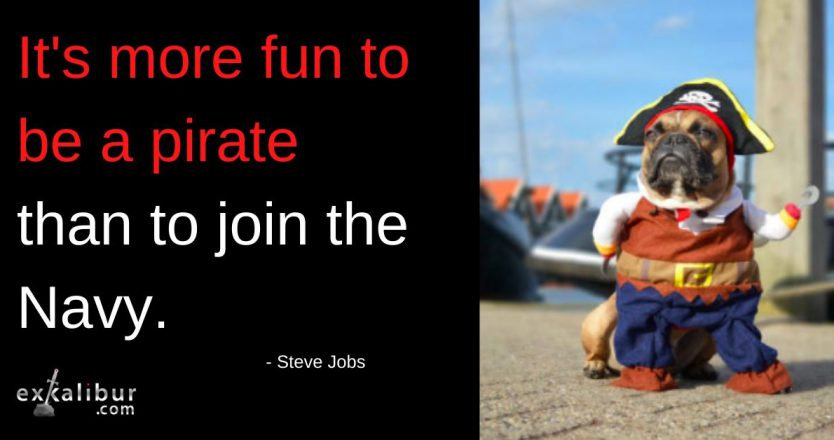How you MAKE decisions will affect the SUCCESS of your decisions.
Are you able to make the tough calls when you need to?

In a TV episode of Black Sails, a compelling saga about the Golden Age of Piracy in the early 1700s (S3/E3), the feared Captain Flint was piloting a pirate ship that was becalmed following a vicious storm. The sea was still.
Rations and water were alarmingly limited, and while the men’s rations had already been cut, an even deeper cut was required so the remaining rations and water would last for the additional week expected before the currents would bring them to landfall.
While the captain’s advisors objected and feared the effects of another reduction for all of the men, Captain Flint had a different idea.
What did he do?
What Was Captain Flint’s Decision?
Flint knew that unless the men who were essential to sailing the ship were strong enough to do so, no one would survive. He decided to feed the men critical to moving the ship when the wind appeared … and reduced to light water only the remaining men who weren’t essential to the ship’s survival.
That’t the kind of difficult and torturous decision that leaders are often required to make.
Why don’t we do what we know we must do?
Libraries are brimming with wit and wisdom to get us to make the tough decisions — and there’s a bottomless pit of experts, gurus and charlatans filling the self-help sections in bookstores to help us find salvation and explode into extraordinary success.
So, with all of this help available … why does this same issue keep showing up like destructive blood cells running through our circulatory system?

What are these tough decisions?
They’re the ones where your gut knows the right answer but you resist because you fear the inevitable blowback.
Maybe it’s the termination of a long-time employee or the closing of a facility, but it’s a decision that won’t go quietly into the night.
If delaying these tough decisions resulted in better outcomes, great — but the fascinating dynamic of this decision process is that delay or hesitation rarely changes the outcome; it only postpones it and makes it worse.
Delaying the Tough Decision = Delaying the Right Decision
Since the tough decision you don’t make is usually the right decision, it continues to nag at you until you eventually pull the ripcord because you’re finally convinced for the 15th time it is the right decision.
In the interim, however, you’ve actually created even more turmoil because you, and everyone around you, have had to deal with the ramifications of the wrong decision over these many months.
Even worse, others in the organization are questioning your judgment … whispering things like
- “Is she blind?” … or
- “Can’t he see this guy is not doing his job?”, or
- “Can’t she see the disruption this woman’s attitude is creating” … and so it goes.
How painful is that?

SYMPTOMS
When you feel that stirring in your gut … when you feel the bile start crawling up your esophagus … that’s a pretty reliable sign something’s amiss.
Likewise, when you realize that you’re mired in the world of “paralysis by analysis,” endlessly seeking some fact pattern that will support your unpopular decision, you can be pretty sure you’re postponing the inevitable.
When you stare into the mirror and see “wishful thinking” etched into its foggy surface, you’re there.
SOLUTION
When you know you’re right, whether in your gut or with every fact you can muster, pull the trigger.
Do what you know is right.
Do it quickly, don’t look back and move on to the next problem.
There will always be unwelcome fallout, but that can happen just as often when a decision is unanimous.
Question: What’s keeping you from making the tough decisions?
Why not join the conversation and share your thoughts and comments? You can add them below. I visit them every day and look forward to discussing these ideas and concepts with you.
Read more articles from the Sword Tips Newsletter – February 24, 2022 – Edition

